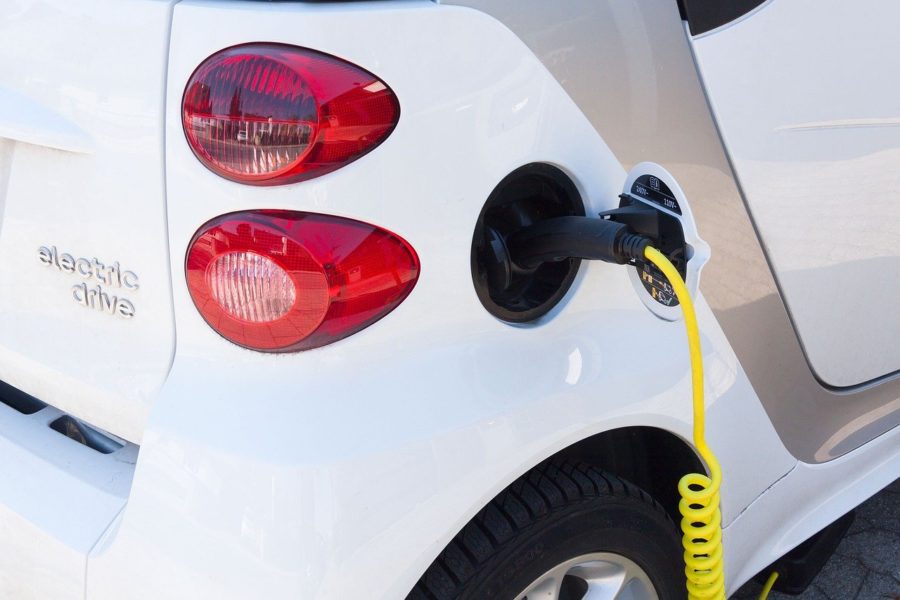Markfield: Your gas car is bad. Your electric car isn’t a lot better
February 17, 2022
The American car market is in flux. After just about a century of gasoline-powered people movers that shaped the economy and contributed to American interests abroad, electrification has come en masse for the United States’ proudest industrial son and its imported competitors. On its face, this is a good thing and a continuation of what many Americans would consider to be a proud legacy of innovating and problem-solving. The electric car is silent, sophisticated, more compelling to younger buyers and technocrats, and, of course, doesn’t run on fossil fuels. There’s just one problem: Almost none of those things are helpful and obscure the very real problems that cars pose on society.
I do want to be clear: While I believe that cars are a net negative on society, they do have a practical purpose; discourse about transitioning society away from such methods of transport is beyond the scope of this piece. And so, as long as we have a car-dependent society, electric cars are preferable. Just not these electric cars.
The problem that modern electric cars pose is that they are not innovative so much as iterative. They are cars, and as such, they are inefficient, depersonalizing and a contributor to a rash of social, political, economic and climate issues. They also are following consumer trends the same way that internal combustion engine cars do, which means that they are larger, more profligate and not any better at transporting people efficiently. In addition, they are significantly heavier, don’t have a necessarily cleaner method of fueling and cause even more damage to road infrastructure.
For that last point, think back to this last Sunday during the Super Bowl, when Chevrolet announced an electrified version of its Silverado truck during an advertising break. The announcement follows Ford’s F-150 Lightning, GM’s own electrified Hummer and the Jeep Wrangler EV, in addition to the ubiquitous Tesla range. New, large electric vehicles are everywhere, and really only about four of them are compactly sized. The rest are overgrown toys with a patina of environmentalism, and their size is becoming a problem.
It isn’t much of a secret that the highway system in America is in desperate need of refurbishment, and road conditions are constantly worsening. Electric batteries are rather heavy — the new Hummer’s battery weighs more than a Toyota Corolla — which means that the cumulative effect on the roads is even worse than before. And the upsizing of cars isn’t just an electric problem — the station wagons, hatchbacks and compacts of years past have been almost unilaterally replaced with crossovers and SUVs, and the roads just can’t keep up.
Another pitfall of electric batteries is their manufacturing process. They require significant amounts of rare earth elements and emit a tremendous amount of carbon dioxide during their creation, not to mention the environmental cost of shipping the cells wherever they may go. And depending on how your state generates its electricity — thankfully, Iowa is becoming more reliant on ethanol and wind turbines but still has a ways to go — powering your electric vehicle may not be much “greener” than conventional cars in the first place.
Then, once in a car, the batteries are locked against maintenance by anyone except a certified repair outfit, which means people cannot learn how to maintain their cars for as long as necessary to make them environmentally sustainable. Not that so many people are necessarily clamoring to maintain their vehicles regardless of what fuel it takes, but the right to repair is a broader societal issue and maintaining our goods for as long as possible is an important step in climate harm reduction. That your Tesla, in addition to the other litany of issues that it may suffer, is not able to be repaired even by owners with sufficient knowledge and equipment is another mark against the current state of electric cars.
Speaking of Tesla’s many failures, another common piece of rhetoric in support of electric cars (Tesla’s in particular) is that they support “driverless” technology. While self-driving cars are an interesting idea, there are two main issues. For one: the technology is pretty flawed and may be bogus, a blow to rideshare apps and electric carmakers/tax money sinkholes of questionable integrity everywhere. For the other, a driverless car still requires the same road infrastructure as a human-operated car, meaning we are likely no closer to solving transportation problems with them than without.
It bears reiterating that I am, overall, not a fan of gas-powered vehicles but rather a proponent of electric cars. For the time that society needs them, they can be a better rendition of our primary mode of transport. But the electric car market as it stands is too reliant on selling their vehicles as toys or status symbols to truly make a difference. And, as has been stated multiple times, they still don’t solve our transportation problems. If you find yourself in the position to buy an EV — and I don’t begrudge anyone who isn’t, car ownership in the United States is an expensive proposition — consider a smaller vehicle that is less damaging to the roads and environment. Perhaps one day, we’ll see more cost and space-efficient electric vehicles come to domestic shores.
The marketing of electric vehicles — and the speculation about driverless ones — relies on a fundamental lie. That technocratic iteration can solve our problems without anyone actually doing anything to change their lifestyle. You can still have the large, fancy car that has so long been part of the American Dream — or whatever remains of it — and that you’re helping save all those polar bears by doing so. Never mind where your electric grid gets its power from or that most car trips are taken alone or that the car still contributes to climate change in its own way.
Auto marketers have done well on their part to attach a progressive patina onto their company’s latest offerings, along with often meaningless net-zero emissions pledges that make for great PR, while we are all worse off for it. Cars don’t have to be necessary for a connected and mobile world. Cities, especially Midwestern ones of all sizes, used to be greatly served by streetcar or rail, and it could be that way again. Ames itself used to have a downtown electric rail car system in decades past. But they were bulldozed out of the way for cars that encouraged suburban sprawl, broke the spines of already marginalized communities — many highways in the U.S. were built through communities of color — and made our lives less social than ever before. The electric car is not a solution but rather the devil’s fashionable brother.







